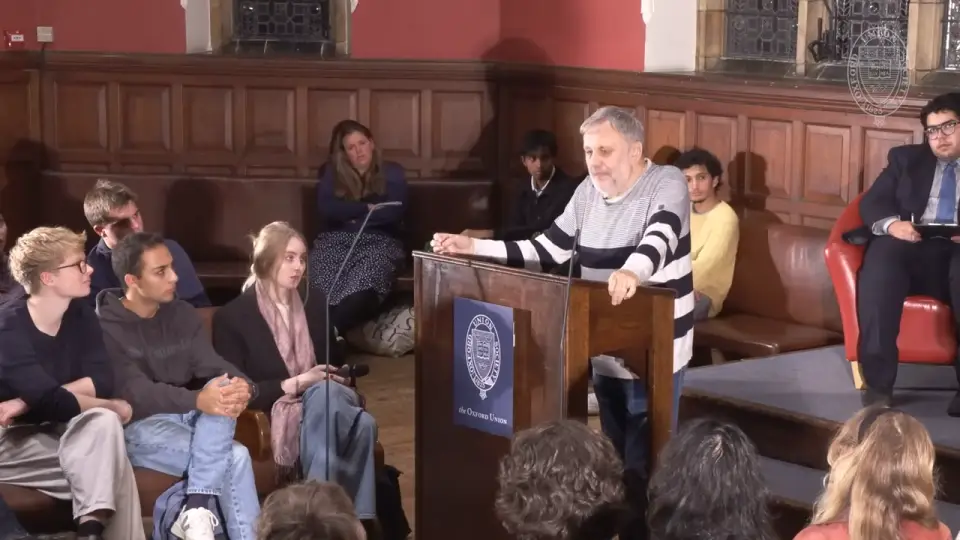Slavoj Žižek uses quantum physics to explain our wild present. He argues we are in a state of “superposition,” with many futures possible. But one dark outcome is most likely. At the same time, we are losing a core human trait: shame.
Table of Contents
🔮 The Quantum Gamble
Žižek sees society at a crossroads. We are not on a single, clear path. Instead, we exist in multiple states at once, like a quantum particle. Major threats like climate change, war, and social unrest push and pull us. Our future is not yet written. The final outcome remains a disturbing open question.
🏛️ The Rise of Soft Fascism
What is the most probable future? Žižek calls it “soft fascism.” This isn’t old-school fascism. It’s a system with a capitalist economy but a very strong state. This state uses invented traditions or religion to stay in power. Žižek points to countries like China and India as examples of this trend. He also identifies “rogue states.” These are places where law and order break down. They must use illegal violence to function.
🤖 Why AI Isn’t Human
What makes us human? Žižek suggests it’s not our intelligence. It’s our strange, meaningless rituals. And, crucially, our ability to swear. Swearing shows a struggle with language and reality itself. He argues that a truly intelligent AI may never grasp these things. These are messy, imperfect, human traits.
😳 The Danger of Losing Shame
Žižek’s biggest concern is the loss of shame. Society has become shameless. Public figures say and do things that were once unthinkable. He argues this is more dangerous than open evil. A world without shame is a world without limits. For Žižek, getting our sense of shame back is a critical first step to fixing things.
Summary
Slavoj Žižek offers a stark warning about our present and future. He believes we are in a quantum-like state of uncertainty, with the most likely outcome being a “soft fascism” where powerful states control capitalism through ideology. He worries about a global loss of shame, a key human trait he believes AI cannot replicate. For Žižek, the uniquely human acts of performing rituals and even swearing reveal a depth that a purely logical system lacks. He concludes that restoring a sense of shame is essential to combat our slide into a dangerous, shameless future.
- Žižek on Trump: Politics as Hardcore Pornography
- How Later Thinkers Used Plato’s Mythic Tradition
- How to Interpret the Myth of Er in Plato’s Republic
- How to Understand the Myth of Atlantis as a Political Allegory
- How to Understand Plato’s Use of Myths in Political Philosophy
- How to Analyze the ‘Noble Lie’ in Plato’s Republic
- Hannah Arendt: Who Asked You to Believe?
